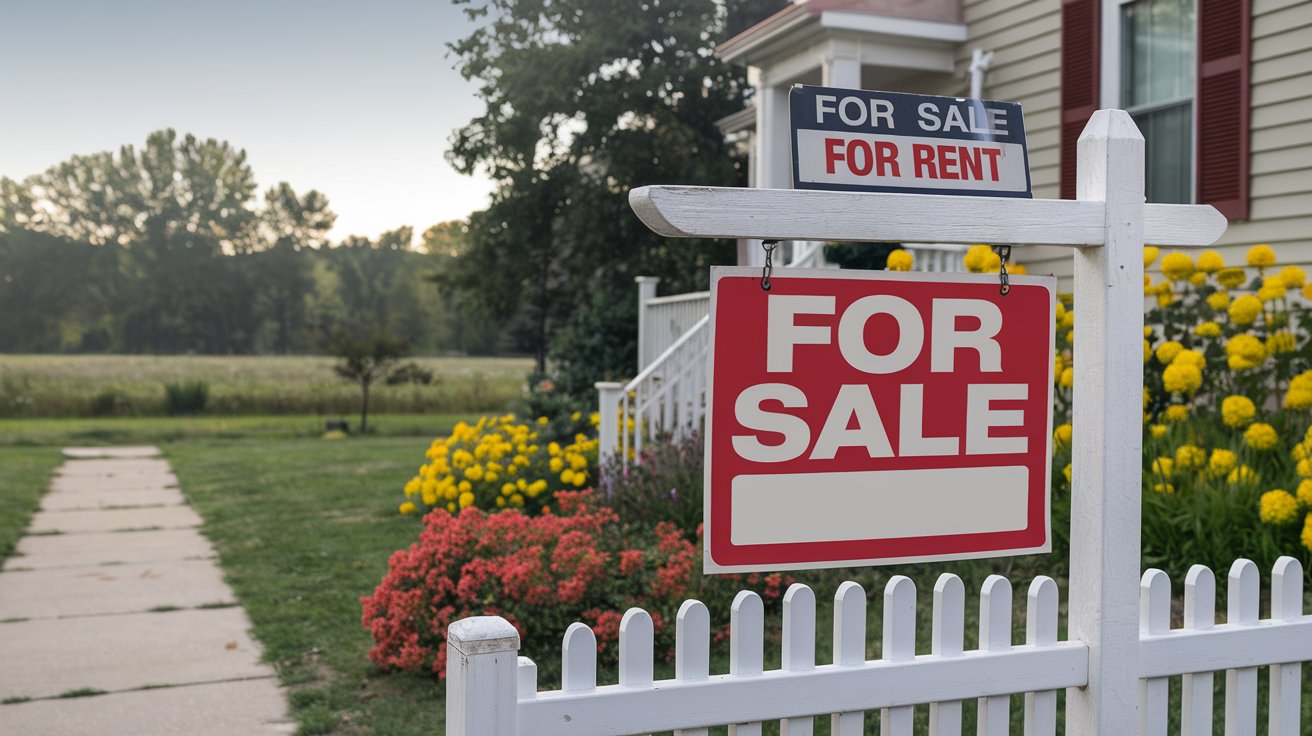Owning a house has long been considered a cornerstone of the American dream. For many, the concept of homeownership is synonymous with success, stability, and financial security. In fact, about 75% of Americans view owning a home as a more significant measure of success than starting a family or earning a degree. The traditional wisdom has always leaned toward buying a house as soon as possible, urging individuals to climb the property ladder to secure their financial future. However, with rising property prices outpacing wage growth, homeownership has become increasingly challenging for many. This article will explore the financial and lifestyle implications of buying versus renting a home to help you make an informed decision.
Financial Implications
Upfront Costs
- Deposit: When buying a home, one of the most significant upfront costs is the deposit. Typically, a minimum of 5% of the property’s value is required, but a 20% deposit is often recommended to secure better interest rates. For example, a 20% deposit on a £1 million property would be £200,000. In contrast, renting requires a much smaller upfront payment, usually around five weeks’ worth of rent. For a £3,500 per month rental, this would amount to approximately £4,035.
- Transaction Costs (Buying only): Buying a home involves several additional costs beyond the deposit. For example, the Stamp Duty Land Tax (SDLT) on a £1 million property for a first-time buyer can be as high as £41,250. Other expenses include a lender’s valuation fee, which typically costs around £750, and a surveyor’s fee for a structural assessment of the property.
Ongoing Costs
- Maintenance: Homeownership comes with the responsibility of maintaining the property, which can be a significant ongoing expense. It is generally recommended to budget around 1% of the property’s value annually for maintenance. For a £1 million home, this equates to £10,000 per year. On the other hand, when renting, the landlord is typically responsible for maintenance costs, relieving tenants of this financial burden.
- Mortgage Payments vs. Rent: Mortgage payments can be higher than rent initially, but they often remain stable over time, offering a predictable housing cost. Rent, however, can increase over time, depending on market conditions and landlord decisions.
Long-term Financial Considerations
Property Value Appreciation: One of the significant financial benefits of homeownership is the potential for property value appreciation. In the UK, house prices have increased by approximately 5% annually over the past decade. This means that a £1 million property could be worth £1.5 million in 10 years, providing a substantial return on investment.
Lifestyle Factors
Long-term Security
Buying a home offers long-term security, especially after the mortgage is fully paid off. Once the 25-year mortgage term is complete, the house belongs to the owner outright, eliminating monthly housing payments. Conversely, renting requires ongoing payments, providing no long-term ownership or financial security.
Flexibility
Renting offers greater flexibility, making it easier to relocate for job opportunities or lifestyle changes. This flexibility can be particularly beneficial for individuals who are uncertain about their long-term plans or who may need to move frequently for work. On the other hand, buying a home ties you to a specific location, which can be a disadvantage if your circumstances change.
Retirement Planning
Owning a home can play a crucial role in retirement planning. Once the mortgage is paid off, the homeowner enjoys the benefit of no monthly housing payments, providing financial security during retirement. In contrast, renters must continue making payments, which can be a financial burden in later years.
The decision between buying and renting a home is complex and depends on individual circumstances. Both financial and lifestyle factors should be carefully considered. While renting offers more flexibility and lower upfront costs, buying can provide long-term financial security and the potential for property value appreciation. With current market conditions making homeownership more challenging, renting might be a smarter decision for some, particularly those who prioritize flexibility or are not yet ready to commit to a long-term investment.
Key Takeaways
- Homeownership is not always the best option for everyone.
- Consider both upfront and long-term costs when deciding between buying and renting.
- Factor in lifestyle needs and future plans when making the decision.
- Renting can offer more flexibility and lower upfront costs.
- Buying can provide long-term financial security and potential property value appreciation.
Making an informed decision requires careful consideration of your financial situation, lifestyle preferences, and future goals. Whether you choose to buy or rent, the most important thing is to find a living arrangement that best suits your needs and circumstances.
